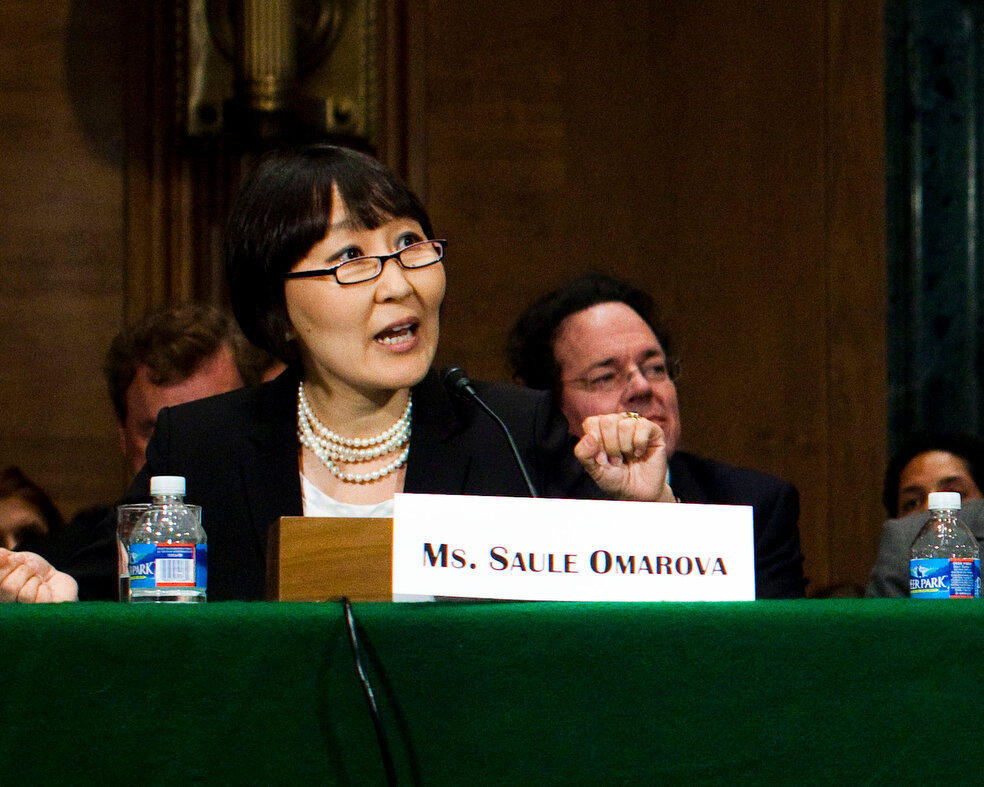One of the key financial departments in the United States might get a left-leaning executive with a very negative attitude towards cryptocurrencies ready to protect fiat money and public finance.
I would call this the most important news for the world economy over the past months. We are talking about the potential appointment of Saule Omarova, Professor of Law at Cornell University, to head the Office of the Comptroller of the Currency (OCC) within the United States Department of the Treasury. President Joe Biden recently announced her candidacy, noting that, if approved by Congress, Omarova will become the first woman and the first person of color to head the agency in 158 years of its existence.

The President-appointed head of the OCC, a huge government bureau, is responsible for public policy regarding bank activity, from traditional mergers and lending to new areas such as cryptocurrency.
Omarova was born in the USSR, in Kazakhstan (as a Kazakh, she is considered a person of color in the USA). In 1991, she left for the United States as part of a student exchange program and settled there. She got a Ph.D. in oil industry regulation. Her second doctorate was in banking supervision. From 2006 to 2007, she advised the Treasury Secretary in the George W. Bush administration.
But Omarova is interesting not only for her career. After working in the Republican government under Bush, she shifted sharply leftwards. Today, she is on the extreme left of the US Democratic Party. Omarova is highly critical of Wall Street giants like Bank of America or Goldman Sachs. She doesn’t believe that those should even exist. And in her new position, she would be specifically tasked with regulating banks, as well as cryptocurrencies.
One of Omarova’s main proposals is to transform the Fed into a central bank. In several interviews, she explained that “Large banks now don’t lend to people using money from those same people’s deposits. Instead, they lend the money of the Treasury. Moreover, many traditional banks have effectively stopped providing affordable deposit accounts to the poor, seeing them as unprofitable high-risk clients. So what do we even need such intermediaries for? Let people borrow from the Fed itself” (or rather, from the National Bank created in place of the Fed).
Clearly, with Omarova as the Comptroller, large banks won’t have it easy.
At the same time, Saule Omarova is also an ardent opponent of cryptocurrencies. She believes that the monopoly on legal tender must remain with the state. She claims that cryptocurrencies threaten to destabilize the economy and are vulnerable to abuse by private companies to the detriment of public interest. In her research, Omarova points out that cryptocurrency transactions provide banks with more ways to bypass the Fed and other financial regulators.
Her priority is tracking the cryptocurrency activity of such major banks as JPMorgan Chase, Bank of America, and Citigroup, which will adversely affect all their cryptocurrency initiatives.
Remember, JPMorgan Chase, despite its criticism of bitcoin, still cherishes ambitions to release its own stablecoin.
And the oldest US bank – Bank of America – allowed its clients to trade bitcoin futures on the Chicago Mercantile Exchange (CME). Furthermore, the bank’s experts (contrary to the IMF’s position) believe that El Salvador will benefit from legalizing bitcoin as a means of payment. Finally, this bank has also joined the Paxos Settlement Service, a blockchain-based securities settlement platform.
Not to be outdone, Citigroup was going to create a separate division for working with cryptocurrencies.
The suspension or even reversal of these initiatives by financial giants can significantly slow down the development of the cryptocurrency market both in the United States and around the world.
Saule Omarova also believes that the rapid growth of the cryptocurrency market “mostly benefits the already existing dysfunctional financial system.”
Bear in mind that in the US, the OCC is responsible for legalizing the activities of cryptocurrency and FinTech companies. For example, in December 2020, the crypto company BitPay approached the OCC for a license to create its own bank according to federal regulations. They wanted to call it the BitPay National Trust Bank. But permission was not granted – although then the OCC was headed by a much more lenient towards blockchain technologies Brian Brooks. It is fascinating that in her interviews, Omarova strongly criticizes modern commercial banks in their role as financial intermediaries. However, she doesn’t want people to abandon banks themselves by transitioning to cryptocurrencies and DeFi. Her idea is to make the state both the main investor in the economy and the chief financial intermediary – all at the same time.



